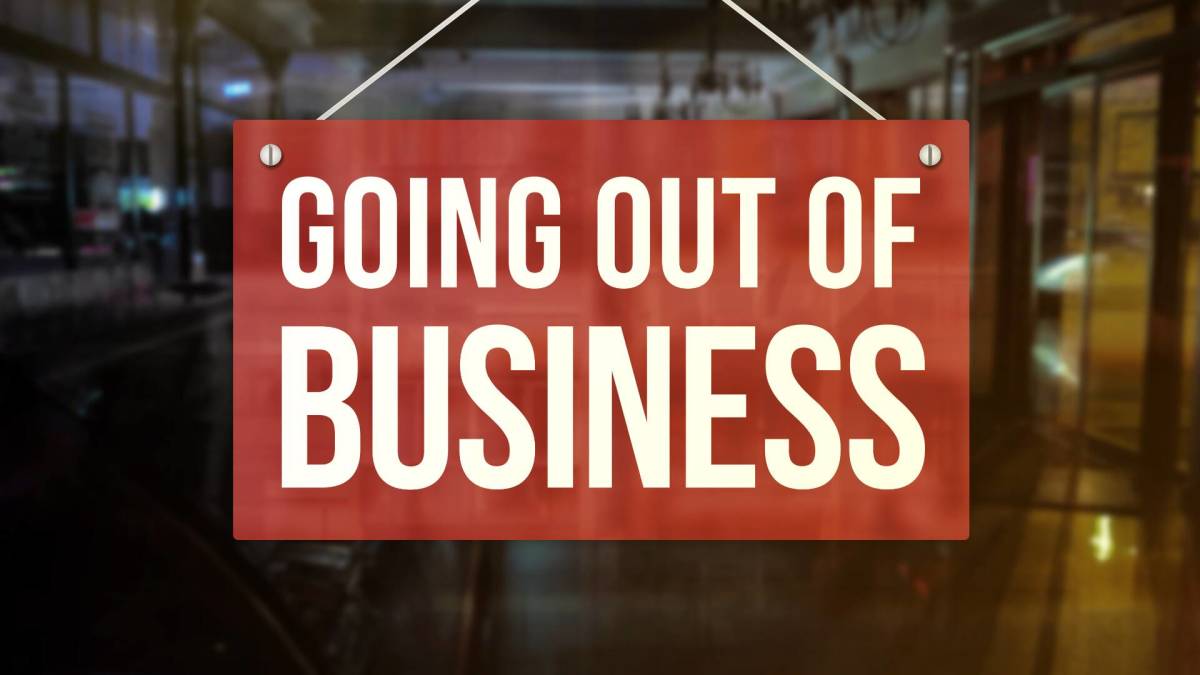
Companies that file for Chapter 11 bankruptcy protection can experience damaged relationships with creditors, suppliers, and customers.
The challenges associated with restructuring businesses via bankruptcy make it a last resort. Nevertheless, inflation, higher interest rates, and tighter loan standards make bankruptcy increasingly common across many industries.
Related: Essential retailer files for bankruptcy, stores will close
Retailers Bed Bath & Beyond and Christmas Tree Shops, electric vehicle company Lordstown Motors, healthcare companies Mallinckrodt and SmileDirectClub, and trucking company Yellow Corporation are among some of the best-known companies to file for Chapter 7 or Chapter 11 bankruptcy in 2023. Even the pharmacy retailer Rite Aid entered bankruptcy recently because it could no longer pay its bills.
Soon, an even more high-profile company could join the list of companies declaring bankruptcy.

Image source: Shutterstock.
Economic uncertainty and rising rates take a toll
Economists have warned that the U.S. could enter a recession for over a year. In 2022, the stock market suffered a bear market because runaway inflation forced the Federal Reserve to raise interest rates to slow economic activity.
The central bank has increased rates by 5.25% since March of 2022, creating a major problem for businesses that took on a lot of variable interest debt over the past few years when interest rates were near zero percent.
As those variable rates adjust higher to reflect the Fed's increases, corporations must spend more on their interest expense. The rapid rate increase has meant that many companies have seen costs associated with their debt skyrocket.
Companies with maturing fixed loans that need to be refinanced are similarly seeing their costs soar. Sometimes, those companies struggle to find lenders willing to issue new loans, forcing them out of business.
According to S&P Global Intelligence, 516 companies have filed for bankruptcy protection this year through September, including 182 in the third quarter.
If a similar number of bankruptcies are filed in the fourth quarter, the total number of bankruptcies this year will exceed the 636 firms that went under in 2020, largely because of Covid lockdowns.
Once the "hottest" company on the planet, this company is the next on its way to bankruptcy
Before the Covid pandemic, coworking office spaces were in vogue. Workers who had become entrepreneurs or who worked from home but wanted services similar to those found in traditional office environments flocked to them.
As a result, billions of dollars in private equity flowed into WeWork WE, an upstart coworking company that leased space to members in major cities worldwide.
More bankruptcy news:
- This alarming statistic suggests a favorite retailer is in trouble
- These two big-name retailers face a huge bankruptcy risk
- Bankruptcy expert says this popular retailer will close many stores
WeWork was founded in 2010 in New York City by Adam Neumann after he sold another coworking venture in Brooklyn. The company's first location was in SoHo, but it quickly grew into a start-up incubator that by 2014 was considered the fastest growing lessee of space in New York City.
The company's expansion was financed by high-profile venture capital and private equity funds, including Softbank, a highly-regarded venture fund focusing on technology companies.
WeWork's expansion plans helped its valuation surge from $16 billion in 2016 to $47 billion in 2019, prompting it to file for an initial public offering. However, the IPO raised red flags about its corporate governance and financial position, including losses, forcing it to scuttle plans to go public, and resulting in Neumann's resignation.
It wasn't until the company merged with a Special Purpose Acqusition Company (SPAC) in 2021 that it became publicly traded. At the time, it's was valued at $9 billion.
Unfortunately, the company's struggles were amplified by Covid-era lockdowns and the widespread adoption of technology, such as Slack and Zoom that made working remotely at home rather than in coworking spaces common.
As a result, WeWork's losses mounted, making it increasingly difficult for the company to pay its bills. In August, it disclosed in its second-quarter SEC filing that it had substantial doubt in its ability to remain a going concern, citing dwindling cash and rising membership turnover.
As of June 30, WeWork had $744 million in current assets, including just $205 million in cash and cash equivalents, and $2.2 billion in current liabilities. It boasted total long term debt of $2.9 billion, and it lost $8.40 per share in the quarter.
The company's negative book value, dwindling revenue growth, and increasing operating costs because of inflation and interest payments appears to have been too much to overcome. The company skipped interest payments in October, and the grace period ended on Oct. 31. The Wall Street Journal reports WeWork plans to file for bankruptcy as soon as next week.
Initially, WeWork hopes to negotiate an agreement to restructure its business via Chapter 11. If it isn't able to work out a restructuring plan with creditors, it could be forced to liquidate under a Chapter 7 filing.
Get investment guidance from trusted portfolio managers without the management fees. Sign up for Action Alerts PLUS now.







